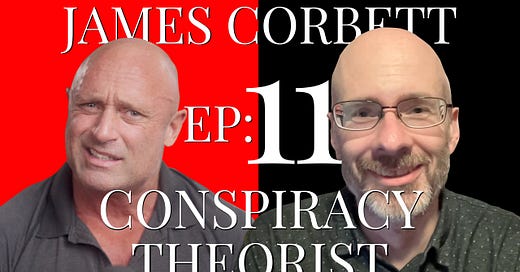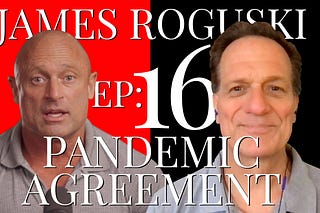
5 Ways to Maximise Peace in the World
Welcome to Part 1 of my 3-Part series on geopolitics.
If you haven’t listened to the Lex Fridman podcast, do.
Its long-form interviews with notable guests are fantastic, covering topics ranging from the nature of God to developments in bioengineering, from the essence of motivation to world politics.
In Episode #401, Lex interviews University of Chicago international relations scholar, John Mearsheimer.
Mutually beneficial trade between nations creates
a reciprocal reliance which neither would wish to disrupt.
Thus, peace is maximised.
Mearsheimer is a controversial figure in the world of international strategy. He is viewed with suspicion among the Washington power elite for his position that the United States itself caused the Russia-Ukraine war by pushing for Ukraine’s admission into NATO, thus creating an aggressive, common border with Russia.
The hawks hate this interpretation!
But I’d never heard John Mearsheimer speak himself, so I listened to the podcast and was transfixed.
International politics is really about keeping the peace; he described five main strategies for achieving that.
Three are liberal approaches.
LIBERAL APPROACH #1: DEMOCRATIC PEACE THEORY
This is the idea that democracies are relatively transparent and that competing democracies can see the geopolitical intentions of the other. This instils trust and is reinforced by pro-liberty values. Thus, peace is maximised.
LIBERAL APPROACH #2: ECONOMIC INTERDEPENDENCE THEORY
This approach says that mutually beneficial trade between nations creates a reciprocal reliance which neither would wish to disrupt. Thus, peace is maximised.
LIBERAL APPROACH #3: LIBERAL INSTITUTIONAL THEORY
Here, the theory says that if we create voluntary, cooperative international bodies, nation states can participate in decisions affecting them and build practical relationships with their counterparts for mutual benefit. Bodies like the United Nations and UNICEF, so peace is maximised.
Running like a thread through these approaches to keeping the peace is that the nation state retains its autonomy, while prosperity is the goal to which to strive.
Competing democracies can see the geopolitical intentions of the other.
This instils trust and is reinforced by pro-liberty values.
Thus, peace is maximised.
After the liberal approaches, there are two realist schools of thought:
REALIST APPROACH #1: HUMAN NATURE REALIST THEORY
This school of thought is sometimes also called Defensive Realism. The idea is that, in order for peace to be maximised, a geopolitical balance of power must be maintained. It could mean some countries will maintain their strength and play the role of world policeman. Think America. And other countries could be denied advancing their geopolitical strength because it would tip the balance. Think Iran securing nuclear weapons. Also think of the example of America and the Soviet Union and their mutually assured destructive nuclear arsenal. If the balance between superpowers is maintained, so the argument goes, peace is maximised.
REALIST APPROACH #2: STRUCTURAL REALIST THEORY
This approach is also called the Offensive Realist Theory. It looks at the world as a competition for security. It starts with Hobbes who said that, in the state of nature, man has to confront anarchy. Here, don’t think of anarchy as a free-for-all riot. Anarchy here is the opposite of hierarchy. Hobbes’ solution in the Leviathan is the nation state. Man gains his security over nature by forming a government. The Structural Realist Theory then suggests this simply moves the competition from individuals to the nation state. To eliminate war, which is the ultimate competition for security, the Theory says we need a world government with binding rules, to which all nation states are forced to comply. This removes competition for security, and thus war.
This is John Mearsheimer’s position, and you can see now hints at why he is controversial.
The two Realist schools are pragmatic and have a strong emphasis on multinational enforcement and have a built-in tendency to authority.
As a classical liberal or libertarian, which of these appeals? Which ones don’t you like?
Let me know in the comments section below.
Next up, let’s find out what the great classical liberal and libertarian leading minds said about this subject. You’ll be able to compare your responses to theirs.
It’s all in Part 2 of this 3-part series on geopolitics: Beware! This Article Channels The Ghosts of Locke, JSM, Friedman and Other Pugnacious Thinkers.













